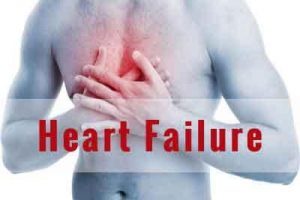- Home
- Editorial
- News
- Practice Guidelines
- Anesthesiology Guidelines
- Cancer Guidelines
- Cardiac Sciences Guidelines
- Critical Care Guidelines
- Dentistry Guidelines
- Dermatology Guidelines
- Diabetes and Endo Guidelines
- Diagnostics Guidelines
- ENT Guidelines
- Featured Practice Guidelines
- Gastroenterology Guidelines
- Geriatrics Guidelines
- Medicine Guidelines
- Nephrology Guidelines
- Neurosciences Guidelines
- Obs and Gynae Guidelines
- Ophthalmology Guidelines
- Orthopaedics Guidelines
- Paediatrics Guidelines
- Psychiatry Guidelines
- Pulmonology Guidelines
- Radiology Guidelines
- Surgery Guidelines
- Urology Guidelines
Smoking causes heart failure : AHA

Study Highlights: Smokers without obvious signs of heart disease were more likely than nonsmokers and former smokers to have thickened heart walls and reduced heart pumping ability. The longer and more cigarettes people smoked, the greater the damage to their hearts’ structure and function. Heart measures in former smokers were similar to nonsmokers, suggesting that quitting may reverse tobacco-related damage.
Study Highlights
- Smokers without obvious signs of heart disease were more likely than nonsmokers and former smokers to have thickened heart walls and reduced heart pumping ability.
- The longer and more cigarettes people smoked, the greater the damage to their hearts’ structure and function.
- Heart measures in former smokers were similar to nonsmokers, suggesting that quitting may reverse tobacco-related damage.
Dallas : Smoking is associated with thicker heart walls and reduction in the heart’s pumping ability, two factors associated with increased risk of heart failure, according to new research in the American Heart Association’s journal Circulation: Cardiovascular Imaging.
The study, conducted in participants of average age 75.7 and no obvious signs of cardiovascular disease, also found that higher rates of cumulative cigarette exposure measure of how much and how long people have smoked during their lifetime were associated with greater heart damage. Studies have long established that smoking leads to heart attacks and is associated with heart failure even in people without cardiovascular disease. However, none have found a clear mechanism by which tobacco may increase the risk of heart failure.
“These data suggest that smoking can independently lead to thickening of the heart and worsening of heart function, which may lead to a higher risk for heart failure, even in people who don’t have heart attacks,” said Wilson Nadruz Jr, M.D., Ph.D., lead author of the study and research fellow at Brigham and Women’s Hospital in Boston, Massachusetts.
“In addition, the more people smoke, the greater the damage to the heart’s structure and function, which reinforces the recommendations stating that smoking is dangerous and should be stopped.”
The study examined data from 4,580 participants in the Atherosclerosis Risk in Communities (ARIC) Study who underwent an echocardiogram. Even after accounting for factors such as age, race, body mass index, blood pressure, diabetes and alcohol consumption, current smokers had thicker heart walls and reduced pumping function, compared with nonsmokers and former smokers.
“The good news is that former smokers had similar heart structure and function compared with never smokers,” said Scott Solomon, M.D., senior study author and professor of medicine at Harvard Medical School and Brigham and Women’s Hospital. “This suggests that the potential effects of tobacco on the myocardium might be reversible after smoking cessation.”
Other co-authors are Brian Claggett, Ph.D.; Alexandra Gonçalves, M.D., Ph.D.; Gabriela Querejeta-Roca, M.D.; Miguel M. Fernandes-Silva, M.D., Ph.D.; Amil M. Shah, M.D., M.P.H.; Susan Cheng, M.D., M.P.H.; Hirofumi Tanaka, Ph.D.; Gerardo Heiss, M.D., Ph.D. and Dalane W. Kitzman, M.D. Author disclosures are on the manuscript.
The National Heart, Lung, and Blood Institute supported the study.

Disclaimer: This site is primarily intended for healthcare professionals. Any content/information on this website does not replace the advice of medical and/or health professionals and should not be construed as medical/diagnostic advice/endorsement or prescription. Use of this site is subject to our terms of use, privacy policy, advertisement policy. © 2020 Minerva Medical Treatment Pvt Ltd